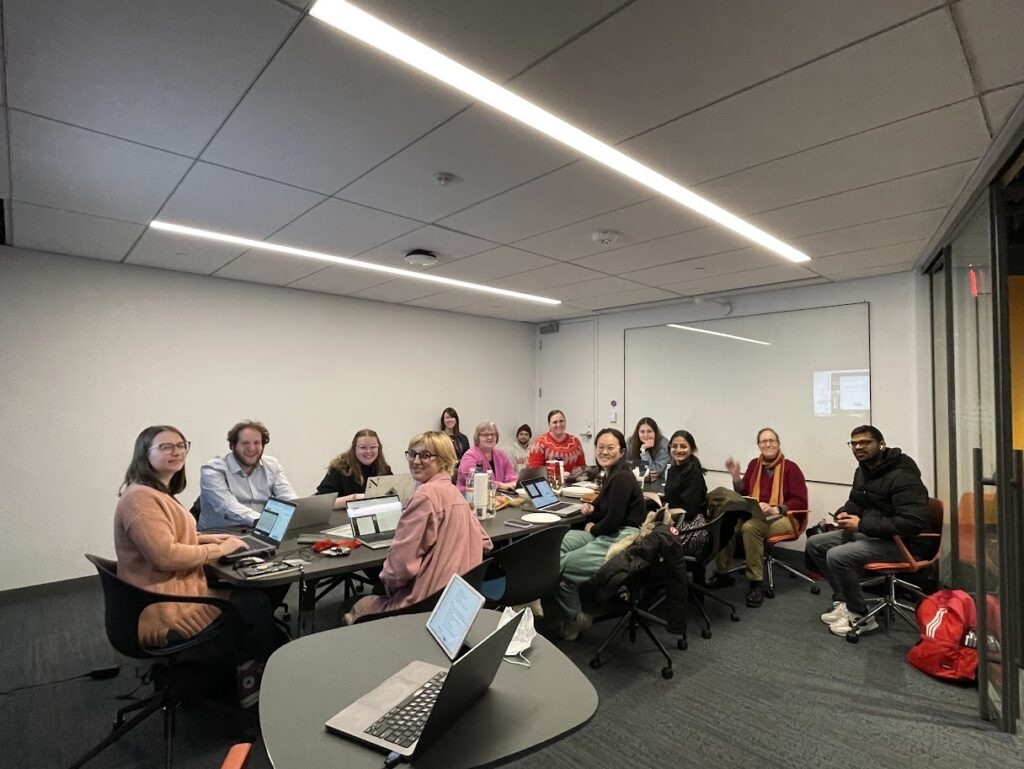By: Claire Lavarreda
“We have to do with the past only as we can make it useful to the present and to the future. To all inspiring motives, to noble deeds which can be gained from the past, we are welcome. But now is the time, the important time. Your fathers have lived, died, and have done their work, and have done much of it well. You live and must die, and you must do your work.” ~ Frederick Douglass, “What to the Slave Is the Fourth of July?” speech in Rochester New York, July 5, 1852.
On February 14th, 2024, the NULab for Texts, Maps, and Networks, the Digital Scholarship Group, the Archives and Special Collections, and the Women Writers Project hosted their annual co-sponsored event known as Douglass Day. Part of a much broader mission to recognize Douglass as well as practice radical love for Black history, the modern iteration of Douglass Day was started by the Colored Conventions Project in 2017 with 250 participants, and as of this year, has exploded into 7,800+ participants. The goal of the event was to transcribe Douglass’ letters from 1841–1912, largely those from the “General Correspondence Series” held by the Library of Congress. Hosted on the “By the People” platform through the Library of Congress, participants are able to select a document and immediately start transcribing.
The specific event hosted at Northeastern as part of Love Data Week on February 14th brought together virtual participants on Zoom and in-person participants in Northeastern’s Snell Library. Attendees in-person (see image at the very bottom) were able to partake in baked goods made by Julia Flanders, while virtual participants were encouraged to enjoy their own snacks and become familiar with the new Associate Director of the Digital Scholarship Group, Caitlin Pollock. Sarah Connell led the event, introducing Douglass Day, walking attendees through the LOC platform, and explaining the principles of transcription, while Caitlin Pollock hosted the Zoom discussion and hands-on.
After introductions and guidelines were set, all participants scrambled to transcribe. Throughout the event, transcribers shared in the woes of nineteenth-century handwriting, the joys of Douglass’ commentary, and the satisfaction of completing a document and sending it for review. Participants could hear others posing questions or comments, and the atmosphere was friendly and productive.
The event was incredibly successful — as of February 15, 2024, and across 160 locations and 7,800 participants, the stats are as follows:
- 1,280 pages of the Douglass letters were completed and transcribed
- 5,123 letters were transcribed and simply need review
- 1,486 letters are currently in progress
As the group emphasized at the conclusion of the event, the transcription of Douglass’ letters does not stop just because Douglass Day has ended! Volunteers are always needed, and anyone interested can participate through the By the People crowdsourced platform. As we reflect on Black History Month and the legacy of leaders like Frederick Douglass, it is important to remind ourselves that it is time to “do your work.”






